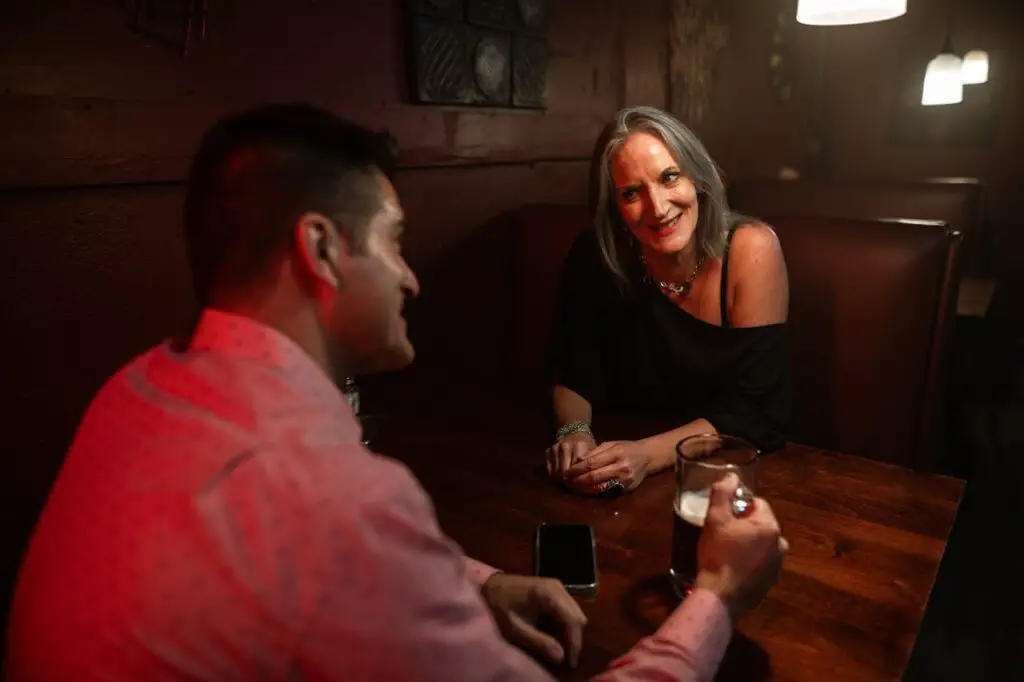How to Find Love Again: 10 Tips for Navigating Life After Divorce or Loss

Reentering the world of romance after a divorce or the loss of a partner can feel overwhelming, confusing, and emotionally draining—but it can also be healing, hopeful, and full of new beginnings. Whether your heart was broken by circumstance or by choice, finding love again requires courage, self-awareness, and a fresh perspective. These 10 essential tips will help you navigate the complexities of dating and relationships after deep emotional loss, giving you practical steps and gentle reminders to open your heart when you are ready.
1. Give Yourself Permission to Heal First

Before diving into a new relationship, it is crucial to take the time to grieve, reflect, and process what you have been through. Whether you are recovering from a painful divorce or mourning the loss of a spouse, healing does not follow a strict timeline. Suppressing your emotions or rushing into dating too soon can lead to unresolved baggage spilling into future connections. Allow yourself the grace to cry, be angry, feel lonely, or even enjoy moments of solitude. This self-compassion becomes the foundation of emotional readiness and long-term happiness.
2. Rebuild Your Identity Outside of a Relationship

After years spent as part of a couple, it is easy to lose sight of who you are independently. One of the healthiest things you can do post-divorce or loss is to rediscover yourself—your interests, passions, values, goals, and even quirks. This is your opportunity to reconnect with the version of you that may have been set aside during your past relationship. Join a class, take a solo trip, volunteer for a cause you love, or simply spend time doing what brings you peace and joy. When you are grounded in your individuality, you will naturally attract partners who respect and complement your authentic self.
3. Take It Slow and Respect Your Own Timeline

There is no universal “right” time to start dating again—only your time. Some people feel ready within months, while others may take years. Do not compare your journey to anyone else’s, and do not let well-meaning friends or family members pressure you into something you are not emotionally prepared for. Reentering the dating world slowly allows you to test the waters without overwhelming yourself. Start with light conversation, maybe a coffee date or a casual walk. Taking your time gives you space to evaluate your feelings, intentions, and how a new person fits into your evolving life.
4. Be Honest About What You Want and Do Not Want

Clarity is your best friend when navigating love after loss. You do not need to have every detail figured out, but having a general sense of what you are looking for—whether it is companionship, casual dating, emotional support, or a long-term partnership—helps you set boundaries and avoid unnecessary heartache. It is also perfectly okay to be unsure and to communicate that honestly. Being upfront with yourself and with potential partners lays the groundwork for healthy, respectful relationships that meet your current emotional and lifestyle needs.
5. Watch Out for Rebound Relationships

After a breakup or bereavement, the desire to feel connected and wanted can lead to rebound relationships—those that fill an emotional void but may not be built on long-term compatibility. While not all rebounds are inherently negative, entering one before you have processed your emotions can delay healing and cause more pain in the long run. Ask yourself what you are truly seeking. Are you dating to escape loneliness, or are you ready to connect with someone meaningfully? Awareness of your own motivations will help you form deeper, more intentional bonds.
6. Practice Vulnerability, Even When It Feels Scary

Opening your heart again after it has been broken takes immense courage. Vulnerability is the bridge to genuine connection, but it can be one of the most intimidating parts of starting over. Instead of hiding behind emotional walls, try to gradually share your story, your fears, and your hopes with someone new. Vulnerability does not mean oversharing; it means allowing yourself to be seen and valued for who you truly are. Each moment of emotional honesty is a step toward rebuilding trust, not only in others but in your own resilience.
7. Address Emotional Baggage with a Therapist or Trusted Friend

Everyone brings some form of emotional baggage into new relationships—but unprocessed pain, guilt, or resentment can sabotage even the healthiest beginnings. Whether you are coping with grief, betrayal, anger, or anxiety, speaking with a therapist or a trusted confidant can help you process your experiences and begin to heal. Therapy is particularly helpful in identifying patterns, strengthening self-esteem, and offering a neutral perspective. When you take the time to understand your past, you are better equipped to build a future free from its shadow.
8. Embrace Online Dating with Caution and Confidence

Online dating can be a useful and empowering tool, especially if you have been out of the dating scene for years. While it can initially feel overwhelming or awkward, a confident and cautious approach can make the experience more enjoyable. Choose platforms that align with your relationship goals and create a profile that authentically reflects who you are today. Be mindful of red flags, trust your intuition, and set firm boundaries. Online dating may not lead to instant love, but it can open doors to new friendships, experiences, and possibly even your next meaningful relationship.
9. Involve Your Family Thoughtfully and Gradually

If you have children or close family members, reentering the dating world may involve more than just your emotions. You might worry about how your new relationship will affect them or how they will perceive your decision to move on. It is important to be sensitive to their feelings while also honoring your right to seek companionship. Introduce a new partner only when the relationship feels stable and serious. Communicate openly and age-appropriately with your children, and remind them that they are still your priority. Over time, many families adjust and even thrive when love is reintroduced with care and intention.
10. Believe That Love Is Still Possible and Worth Pursuing

Perhaps the most important tip of all is to believe that love, even after deep loss, is still possible. It may not look the same as your previous relationship, and that is okay. This is a new chapter, not a repeat. Release the idea that you have missed your window for happiness or that love is only for people without scars. Many people find meaningful, life-changing connections in their forties, fifties, sixties, and beyond. The heart has an incredible ability to heal, grow, and love again. Your story is not over—it is simply evolving.
Final Thoughts

The road to finding love after divorce or loss may be winding, but it is paved with opportunities for growth, renewal, and joy. By embracing your healing process, nurturing your individuality, and opening yourself up to the possibilities of new connection, you are not just seeking love—you are becoming it. Remember, your next relationship does not define your worth; it reflects the love you have cultivated within yourself. Be kind to your heart, take your time, and when you are ready, step into love with hope and intention. The best is yet to come.
Leave a Reply